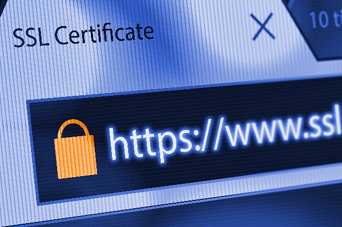The Difference Between a Public and a Private IP Address

Each time you connect to the internet, your devices uses a string of numbers called an Internet Protocol (IP) address to send and receive online data like video content. Like the return address on a  letter, online applications stamp this string of numbers on every online request you make. It tells your browser where an online data packet is coming from and where it should go.
letter, online applications stamp this string of numbers on every online request you make. It tells your browser where an online data packet is coming from and where it should go.
Devices use one of two kinds of IP addresses: public and private. Any device in the world can find and access a public IP address, so people use these IP addresses to host content that they want others to access. A private IP address, on the other hand, is for local network use only.
How Do Public IP Addresses Work?
Public IP addresses are linked, either temporarily or permanently, to specific domain names. To access the EvdoDepotUSA website, for example, you would type “evdodepotusa.com” into the address bar at the top of your browser. Then, your browser would match that URL with the site’s public IP address using an online directory called the Domain Name System (DNS). Once your browser knows the site’s public IP address, you can access the site’s content on your device.
 Of course, your device also needs to have a public IP address to receive data from the site. There are only so many public IP addresses, because each must be a unique string of numbers, so internet service providers pool these addresses for their users to share. When you connect to the internet, your network draws a random address from this pool for your device. When you disconnect from the internet, your network returns the address to the pool so that someone else can use it. As a result, the public IP address of your devices change constantly.
Of course, your device also needs to have a public IP address to receive data from the site. There are only so many public IP addresses, because each must be a unique string of numbers, so internet service providers pool these addresses for their users to share. When you connect to the internet, your network draws a random address from this pool for your device. When you disconnect from the internet, your network returns the address to the pool so that someone else can use it. As a result, the public IP address of your devices change constantly.
A static IP address always stays the same. The DNS entry doesn’t change for networks like “evdodepotusa.com” with static addresses.
A dynamic IP address changes with every internet session. The DNS entry constantly changes for networks with dynamic addresses.
How Do Private IP Addresses Work?
Only your local network knows the private IP addresses of your devices. Your internet router uses Network Address Translation (NAT) to hide your private IP addresses behind dynamic public IP addresses. It then redirects internet traffic from these public IP addresses to the appropriate private IP address. NAT protects your devices from hackers by making it impossible for other devices on another network to find and connect to your device remotely.
Local networks typically assign dynamic private IP addresses to devices on the network. In some cases, you may want to use a static private IP address on a device:
A static IP lets you use a secure virtual private network (VPN). Whether you’re attempting to connect on site (i.e. where the network is) or remotely, you can verify your identity with a static IP address before you gain access to a secure VPN.  A static IP lets you use a secure email account. To gain access to a secure account, you might need to authenticate your identity with a static IP address.
A static IP lets you use a secure email account. To gain access to a secure account, you might need to authenticate your identity with a static IP address.
While NAT makes your network more secure, it limits what you can do in online games. A static IP lets you open your NAT type so that you can play with friends, join lobbies, and host games.
A static IP address ensures that the networking changes you make to VPN access, email access, or online gaming are permanent, even when you restart your computer. Learn more about giving your PC a static private IP address.


